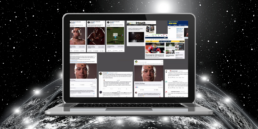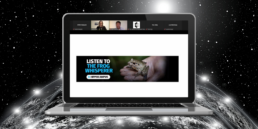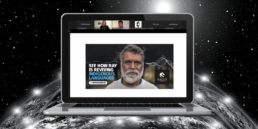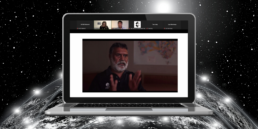The importance of storytelling is regularly highlighted as a key communications tool across many sectors. Done properly it can build a connection between you and your audience; inspire them to take action and make a real impact in the community. That is exactly what University of Newcastle has achieved.
In a World 100 Reputation Network webinar, speakers from The University of Newcastle, Australia, shared how the university has used the period of the pandemic to reinvent its engagement with key communities by breaking down the barriers between brand and communications through storytelling.
The session was led by Tracy Chalk, Chief Marketing Officer with insights from Tina Imig, Head of Brand and Lou Morrissey, Deputy Director, Communications. They shared details of how Newcastle has built their storytelling ecosystem, with a strong focus on engagement with local communities.
Tracy shared research that showed that only 53% of Australians feel connected to their community, and how there is a connection between this lack of community belonging and the consumption of local content. This posed the question of how university overcomes barriers to be able to engage people with the work they are doing; and demonstrate the qualities of a civic university?
The University of Newcastle has focused on developing an ecosystem that focuses on putting the story at the heart of communication and branding. To clarify how they did this, Tracy shared numerous examples of stories the university has developed with a focus on research in areas that resonate with the community in Newcastle; stories that capitalize on the sense of pride and belonging to that area.
A key example was research into concussions in rugby. Not only did this research have results that would impact the rugby community around the world, but it tapped into the strong love of rugby league in Newcastle in particular, and was tailored to specific groups such as parents of kids at local rugby clubs.
Tracy shared examples of the reach of the story across owned, earned and paid media platforms, and the engagement that came with that coverage, including the request from a local high school to use the story as a case study in the year 9 science project.

Another example was ‘The Frog Whisper’; research into the impact of the recent bush fires on frogs and other animals, highlighting the tragic number that were killed during the period. This story achieved impressive engagement, including a 60% Click-to-Conversion rate which was the highest of any of the university’s stories so far. The team also partnered with an Education PhD candidate on this story to develop a lesson plan that could be used by secondary school students as part of the state curriculum.

The final example was the story of ‘Ray’ and his experience of the loss of aboriginal languages, including his own, which had a large personal impact. Ray studied recordings of older generations and was able to reconstruct his own lost language and to educate younger generations including his own grandchildren. The heartfelt, emotionally charged story wasn’t intended to have broad reach but rather to generate deeper and richer local engagement. And that is exactly what was achieved. Ray’s story led to a collaboration with the Aboriginal Language Trust, a government-run agency for nurturing and growing indigenous languages.
All the featured stories in the University of Newcastle’s storytelling ecosystem have to meet two important criteria when judging their suitability. First, the story must be anchored in a sense of place, and secondly, it must demonstrate community impact. The team at Newcastle has developed a clear plan for how the stories are selected, portrayed and visualized, and disseminated throughout the university and beyond.
Newcastle’s innovative approach is helping to redefine the way in which universities can use their limited resources to achieve maximum impact and build reputation with key stakeholders.
World 100 Reputation Network members can view a recording of the webinar here
To sign up for more W100 webinars featuring global universities sharing their knowledge ad experience, click here



